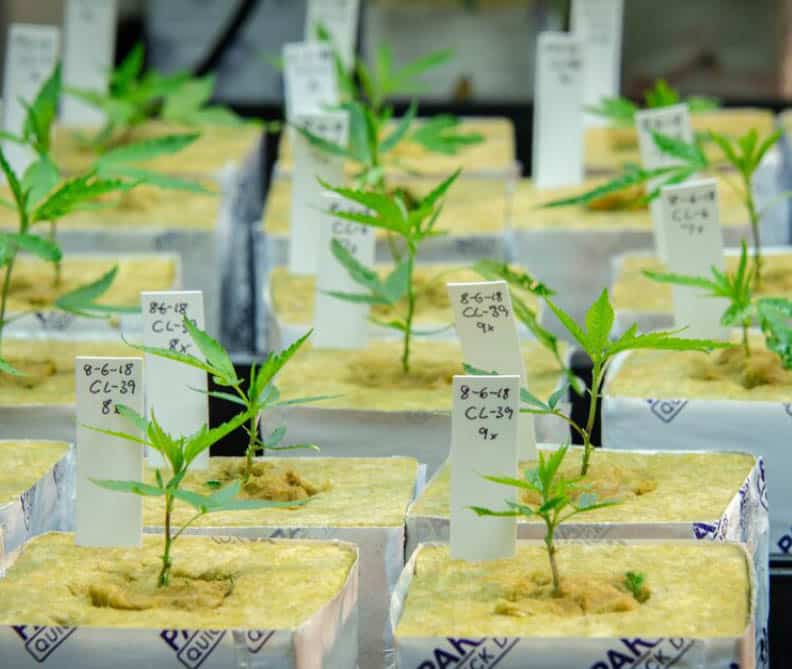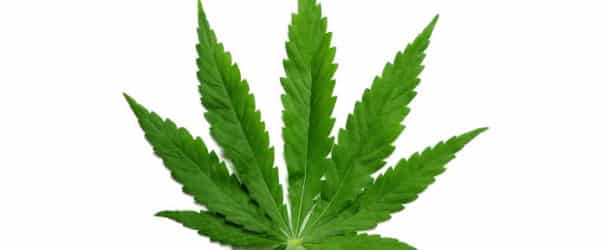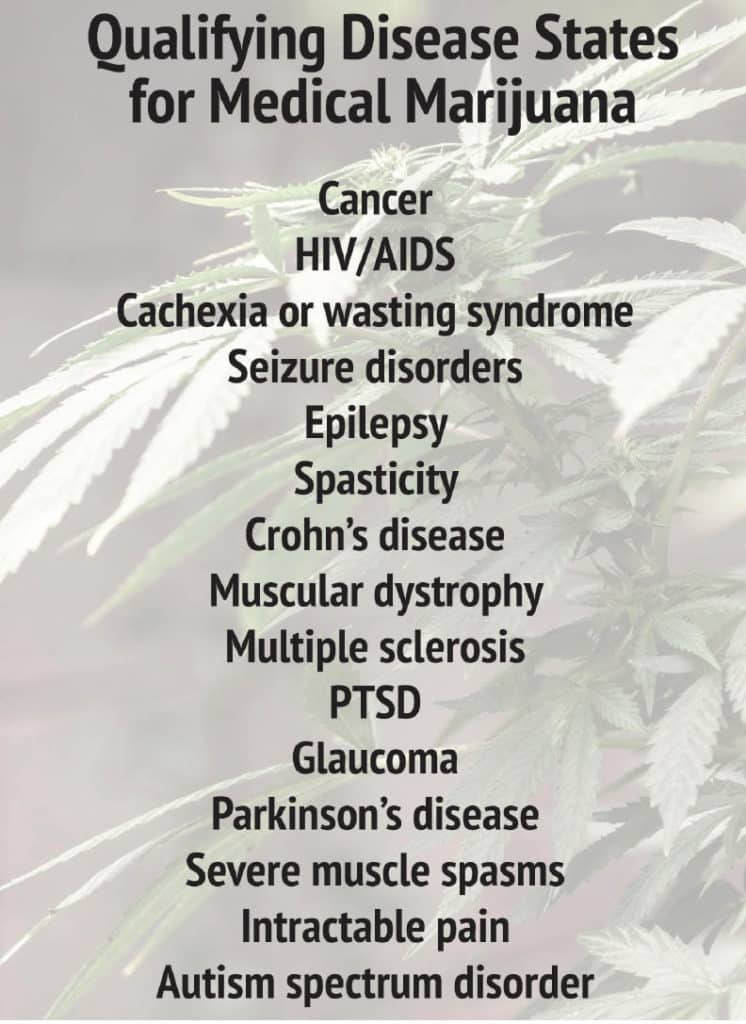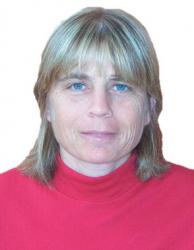‘Medicine And Compassion For Those Who Need It’
By Karla Wall
A local pharmacy, Medicis, now under construction at 1727 Imperial Blvd., will soon begin dispensing medical marijuana to those with a recommendation from a physician.
The pharmacy was granted the license as the sole dispenser for the state’s southwest region, and if all goes as planned, should begin filling prescriptions for medical marijuana in March, says owner John R. Condos, PhD.
The opening of Medicis, and the eight other such pharmacies that will open throughout the state in the coming months, is the culmination of decades of legislative and bureaucratic work.
40 Years In The Making
Most readers will be surprised to discover that medical marijuana has actually been legal in Louisiana since 1978, when the state legislature passed, and Gov. Edwin Edwards signed into law, legislation allowing the use of medical marijuana to treat those suffering from glaucoma and the effects of chemotherapy.

Medicis will be located in Imperial Pointe, the growing upscale medical complex off of Nelson Rd. in South Lake Charles. “It’s not going to be a neighborhood hangout,” Condos says. “The pharmacy will be a professional medical building serving a specific patient population in need of an approved medical treatment.” And it will be more than secure.
While that law was groundbreaking, it didn’t actually do much at all, as the state health department failed to set up the required review board for prescription of medical marijuana or to contract for growers.
In 1991, nearly 20 years after the initial legislation was passed, the state Legislature again addressed the issue of medical marijuana, adding spastic quadriplegia to the list of ailments that could be treated. Still, no process or review board was put in place.
In 1994, the state health dept. finally drafted rules permitting physicians to “recommend” medical marijuana (they can’t “prescribe” it, as it’s still a Schedule 1 federally controlled substance). But the rules, like the legislation that gave rise to them, had little effect, as important issues such as cultivation, dispensation and production were left unaddressed.
The beginning of the push to finally give teeth to the 1978 law came in 2015, when the state Legislature again visited the issue and heard testimony from Michelle Hall, who displayed the many drugs taken by her then-four-year-old daughter, who suffered with seizures. Half of those medications, Hall testified, could be eliminated if her daughter were allowed to take medical marijuana.
S.B. 143 was passed, which finally provided a framework for growing, distributing, prescribing and dispensing medical marijuana. It also added several conditions to the list of those which could legally be treated with medical marijuana: HIV/AIDS, seizure disorders, wasting syndrome, epilepsy, Chron’s disease, muscular dystrophy and multiple sclerosis.
While previous legislation had been opposed by law enforcement agencies, in particular the La. Sheriff’s Assoc., this bill had the backing of that organization’s leader, whose colleague had a daughter who was dying of cancer. Sheriff Mike Neustrom’s daughter, Alison, had testified before the legislature the previous year that medical marijuana would help her overcome the effects of chemotherapy enough so that she could interact with her then-two-year-old daughter.
Yet, still not much was done. The fire had been lit, however.
Just recently, in May, yet more diseases were added to the list of treatable conditions, including glaucoma, severe muscle spasms, intractable pain, Parkinson’s disease, PTSD and severe autism.
And just a couple of weeks ago, the cap limiting the number of patients for whom each doctor could recommend medical marijuana was removed. (Physicians had been prevented from recommending it to more than 100 patients at a time.) The rule requiring patients to visit their physician each time they wanted to renew their recommendation was also removed.
Lake Charles Business Wins License
So, the stage was set, the framework in place, and the Louisiana Board of Pharmacy requested applications for medical marijuana permits, one to be issued in each of the state’s nine health districts.

LSU AgCenter medical marijuana growth facility in Baton Rouge. The facility is one of two licensed in Louisiana. The other is affiliated with Southern University.
“The board asked for written materials, mandated criminal background checks and requested detailed information from each applicant,” says Condos. The application included requests regarding the character of the owners, experience, outline of operations, location and design of the pharmacy building, security plan and financial information.
The competitive process moved onto the next round, which included a presentation and question-and-answer session with the application committee. “We met with them several times,” Condos says. “It was a very thorough and well-thought-out process by the board.”
Medicis was chosen from among five applicants in the Southwest District.
“I think we were chosen partly because of our belief in providing compassionate care to our patients,” says Condos. “We demonstrated our knowledge of the industry and highlighted our past accomplishments. We also committed to building a new, secure and state-of-the-art pharmacy in the premier medical community of Imperial Pointe.”
It also helped that Condos has a PhD in management, and his father, retired cardiologist and Army Lt. Colonel Dr. William R. Condos, Jr., MD, is the pharmacy’s medical director. They also worked with a consultant who has extensive experience in the medical marijuana industry.
“We have strong ties to the medical community, to law enforcement and to Southwest Louisiana,” Condos says.
What Is Medical Marijuana?
But what is it, exactly, that Medicis will be distributing?
First, it might be best to discuss what medical marijuana isn’t; it’s not cannabinoid, or CBD from hemp. As Brad Goins points out in another article in this issue, CBD is derived from different parts of the cannabis weed, and contains no THC, which is the component of marijuana responsible for the “high,” or euphoric feeling, marijuana users experience.
Medical marijuana may contain THC in addition to CBD, which is why many say it will help more patients with debilitating illnesses. The effect produced by THC helps mask pain, or at least makes it tolerable. THC is also responsible for many of the health benefits used to treat multiple medical conditions. Different ratios of THC to CBD are utilized to produce medicine that provides relief and acts in different ways, Condos says.
However, it’s a mistake to equate medical marijuana with street-purchased smokable marijuana.
The medical-grade marijuana distributed in the pharmacies will be grown in a controlled environment in one of two state-controlled labs and growing facilities, one located in Baton Rouge, operated under the LSU Ag Center, and managed by Las Vegas-based GB Sciences. The other is located in Baker, operated under Southern AgCenter and managed by Advanced Biometrics.
“It’s not street marijuana,” says Condos. “It’s highly regulated and controlled. You know exactly what you’re getting. Dosages and mechanism of delivery are varied according to each patient’s specific needs, as discussed with and recommended by their physician.”
The La. Dept. of Health Board of Pharmacy has set guidelines for testing for potency, the presence of microbiological contaminants like yeast and mold, and the presence of pesticides, solvent residue, heavy metal and mycotoxins. The end product is also tested to ensure that each batch is similar. The growth facilities can be inspected randomly by the Louisiana Dept. of Agriculture and Forestry.
John Davis, executive vice president and general counsel for GB Sciences, says that there are three ways in which the production of the company’s product is controlled, from planting to packaging.
“First, we know the strain of (cannabis plant) we’re dealing with. It’s a proprietary strain that we’ve used for quite some time, and we know how to grow it to maximize quality and efficiency,” he explains.
Secondly, GB Sciences’ plants are started from cuttings, “actual slivers of tissue about the size of fingernail clippings,” rather than seeds, says Davis. “That eliminates, or substantially reduces, the risk of genetic drift — the alteration of plants’ genetic material from one generation to the next. Using cuttings ensures reliability — that the patient will get the same symptom relief every time he takes the product.”
Third, Davis says, the environment is strictly controlled, again, to eliminate diversity in the plants and ensure a homogenous product.
“If plants get more or less sun, more or less water, or if there are differences in humidity and temperature, there will be a difference among plants in growth rate, nutrients — the environment can alter a plant,” he explains. “We control the environment and growing conditions to reduce all variables. We follow a biopharmaceutical method to ensure that the product the patient gets is what they are expecting.”
The extract will be given to patients in several forms, including chewable gels, patches, oil, spray — all forms except combustible.
GB Science began planting in August and Davis estimates that they will have product available to pharmacies by November. The company is waiting, he says, for the LDAF to complete a testing facility (the product must be tested by LDAF under state guidelines); as of now there’s no operational LDAF facility.
“We’re going to discuss other options if physicians, patients and pharmacies are ready for product and we still don’t have an LDAF testing facility,” Davis says. “Perhaps we’ll have third-party, independent testing done elsewhere.”
Does It Work?
Does medical marijuana work? Individuals have used marijuana for numerous health conditions for several thousand years, Condos points out. In the past, he says, it’s been difficult to properly study the health effects of marijuana due to legal hurdles and the variability in the concentration of marijuana’s psychoactive chemicals.
However, recent easing of research restrictions and the increased availability of different types of the plant have allowed for further study. But Condos feels more regulatory changes and scientific studies are necessary. The results of medical research on the use of marijuana currently varies widely by disease.
“Cannabis has been used for centuries in Europe and Asia, and more recently in the United States,” says Medicis medical director William R. Condos, Jr., MD. “The scientific basis of how this drug works has rapidly evolved in recent years. Cannabis for selected medical uses is now legal in the majority of states and will soon be available in Louisiana. Its use for multiple approved medical conditions demonstrates great potential benefits for patients.”
The verdict based on anecdotal evidence seems to be that, for most patients, medical marijuana does work, and in most cases, better than the opioids and other stronger medications used to relieve chronic pain or deal with side effects from disease.
Tony Landry, a U.S. Navy veteran who has dealt with chronic back pain for years, says he tired of dealing with the side effects of the opioids he was taking to control the pain.
“Opioids are causing so many problems for those with chronic pain,” he says. “They have harsh side effects.”
He turned to alcohol, he says, in order to stop taking the opioids, then eventually began using marijuana, which he says controlled his pain better than opioids and with no side effects. He realized after having taken marijuana for a while that he was able to forego his other medications.
Landry is an active member of Veterans for Medical Cannabis, an organization that has visited the state legislature often to advocate for the legalization of medical marijuana.
“I realized that there needed to be a safer option,” he says. “Medical marijuana will allow veterans and others with these illnesses to get off of a lot of the stronger, more addictive medications. And the pharmacies will allow them to obtain it in a safer, more controlled environment. (The pharmacies) will get them off the street.”
Physicians On Board?
Medical marijuana can only be dispensed to those who consult with a physician, who must recommend it for them.
Dr. Chad Rossiter of Total Health Clinic in Lake Charles, which will begin seeing patients in October, is one of the handful of physicians who currently hold a license to recommend medical marijuana.
“I’ve had many patients ask about alternative therapies such as medical marijuana for their debilitating medical conditions,” he says.
Physicians must apply for a license to dispense medical marijuana, and must take training courses before being licensed. Licenses will have to be renewed annually.
Rossiter and other physicians who’ve become licensed to recommend medical marijuana tell of patients who come to them desperate for pain relief and the ability to live as normal a life as possible while enduring the effects of, say, chemotherapy. They see the new pharmacies as helping people who desperately need it, and doing it in a safe manner. They also see it as a way to stem the opioid epidemic, giving patients a way to control their pain without such medications.
Other physicians I was able to discuss the matter with aren’t so sure about medical marijuana yet, saying they won’t apply for a license to recommend just yet, and are hesitant to recommend a Schedule 1 narcotic like THC to patients.
“Not A Hangout, Not A Head Shop”
For many, perhaps most, readers, the idea of a pharmacy whose sole purpose is to dispense marijuana leads to images of street toughs hanging around outside a building in a rough section of town, haggling passersby and waiting until the pharmacy opens to gain a (finally!) legal fix.
Banish those images.

Tony Landry, a U.S. Navy veteran who has dealt with chronic back pain for years, says he tired of dealing with the side effects of the opioids he was taking to control the pain.
He turned to alcohol, he says, in order to stop taking the opioids, then eventually began using marijuana, which he says controlled his pain better than opioids and with no side effects. He realized after having taken marijuana for a while that he was able to forego his other medications.
First, Condos emphasizes that the pharmacy will be located in Imperial Pointe, the growing upscale medical complex off of Nelson Rd. in South Lake Charles.
“It’s not going to be a neighborhood hangout,” Condos says. “The pharmacy will be a professional medical building serving a specific patient population in need of an approved medical treatment.”
And it will be more than secure.
“We are going above and beyond with our commitment to security,” states Condos, saying that they will be working with local law enforcement and constructing a secure building.
Medicis will be equipped with 24-hour security monitoring, motion detectors, on-site security, a cement and steel vault, numerous security cameras, security lighting, and secured doors with controlled access.
“We are emphasizing security for the safety of our patients, our employees and the public,” Condos says.
The product will be delivered via secure methods, says Condos, and a tracking system will be in place to keep tabs on all product leaving and coming into the pharmacy.
Law Enforcement Voices Concern
Calcasieu Parish District Attorney John DeRosier isn’t sure the security or the location of the pharmacy lessens the potential for problems.
“My concern is that we’re heading in the same direction as California (toward the legalization of marijuana in all forms),” he says. “We’re opening the door. Once we have marijuana legalized for pain, it’s easy to open it up to everyone. It will follow a natural migration to legalized smokable marijuana.”
Three supervisors with the parish’s Combined Anti-Drug Task Force, with one acknowledging that medical marijuana “will be a life-changing medication for some people,” voiced concerns about the potential for crime associated with the legal dispensation of medical marijuana.
“When people need a drug and can’t get it, they will do whatever they need to do to obtain the substance they are addicted to or needing to function in their day to day life,” one said.
Changing The Conversation
Condos says that the pros and cons of legalized medical marijuana and the pharmacy is a conversation that needs to take place in the area in the coming months, but it’s a conversation in which the focus needs to change.
“The conversation needs to move away from the stigma and fear associated with medical marijuana and towards the hundreds, perhaps thousands, of people who will be helped by it,” he says. “It’s easy to talk about the negatives associated with marijuana, but when it’s your daughter who’s having seizures, or your son with severe autism, or you are addicted to opioids and need a safer alternative for pain management, your outlook changes.”
Condos understands the reason for concern, but believes that medical marijuana, like many medicines, can be beneficial if used appropriately.
“My mother is battling end-stage cancer and suffers every day,” he says. “We have seen first-hand the struggles of sick people and can empathize with them and their families. We’re in this to help people; we have a desire for helping others. We are providing real medicine and compassion to people who really need it.”
For more information on Louisiana medical marijuana, visit louisianamedicalmarijuana.org.


















Comments are closed.